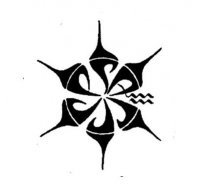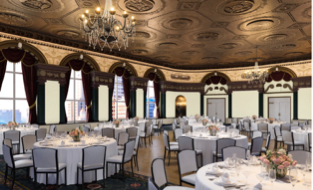Join us in the heart of downtown Providence for your next phycological adventure! The PSA2023 meeting will convene – in-person – at the Graduate Providence, formerly the Biltmore, located within walking distance to numerous restaurants and local entertainment. Please plan to arrive on Sunday, June 25th for the Welcoming Mixer at 6 PM and depart Friday, June 30th - we have a week of phycological excitement that you will not want to miss!!
REGISTER NOW!!
Still need a room for the meeting? Let the Graduate-Providence help!
If you have not booked your room, or booked elsewhere because you missed the deadline, please reserve your room at the Graduate today!! Please contact Kristina Fisher directly for your reservation. There are still rooms available and she will honor the discounted rate of $175/night!!
Scientific Program – download the final detailed program here.
The theme of this year’s meeting is Phycology in a Changing Climate: Diversity, Blooms, and Beyond. The program will consist of daily plenary talks from leading scientists in the field of algal monitoring and conservation. We will also have the Bold Award Competition, IDEA Symposium, Student Symposium, Lang Lecture, poster sessions (including the Lewin Award Competition), lightning talks, contributed sessions, and the engaging annual PSA auction. We will conclude the meeting on Thursday evening with the PSA Awards Banquet in the Biltmore Ballroom.
This year, we are sponsoring an Early Career Breakfast, IDEA Lunch and Discussion, and tantalizing your tastebuds for the PSA Business Meeting. Please be sure to check "attending" on your registration form so we may get an accurate headcount for these events.
Also, there are several exciting weekend workshops on seaweed collection and identification, producing publication-quality scientific figures, inclusivity in teaching, as well as an aquaculture tour and oyster social at Roger Williams University. These spots will be reserved on a first-come basis. Secure your seats today!
Please note you must purchase tickets for workshops and weekend events separately.
Instructions for PSA 2023 Presenters
Oral Presentations
Please upload your PowerPoint no later than 8:45 AM on the day of your talk in the PSA Tech HQ located (L'Apogee A, 17th floor). Add your file to the folder with the appropriate room (Biltmore vs Narragansett) and name your file accordingly: TIME_DAY_LASTNAME, e.g., 1400_TUE_Huang.
DO NOT YOUR LOAD YOUR PRESENTATION AT THE PODIUM – this takes away time from your presentation and is a distraction for others.
Poster Presentations
Please have your posters up and displayed in L'Apogee B (17th floor) at your numbered location before 5 PM on Monday, June 26th, 2023. Take down your posters no later than noon on Thursday, June 29th, 2023 so the poster boards can be disassembled and returned to the rental company.
We have an amazing line-up for the week! The program at-a-glance can be found below and the draft program can be found HERE (link to final pdf)!
Here’s a snapshot of the invited speakers and special symposia:
Monday, June 26th, 2023
Fabien Burki is an Associate Professor in the program of Systematic Biology at Uppsala University (Sweden). He moved to Sweden in 2016 to start his lab, after undergraduate and graduate studies at the University of Geneva and a postdoc at the University of British Columbia in Vancouver. He is also a platform scientific director at the microbial single-cell genomic facility at SciLifeLab, and an Associate Editor in the journal Molecular Phylogenetics and Evolution. Fabien’s work in phylogenomics has contributed to obtaining a modern understanding of the tree of eukaryotes, which he uses to frame essential diversification processes during eukaryote evolution such as endosymbiosis. Currently, his lab’s main interest is the study of plastid origin, for which he is supported by an ERC Consolidator grant. Website: https://www.burki-lab.net/ Fabien will present his talk, entitled, GENOMIC FOOTPRINT OF PLASTID ENDOSYMBIOSIS: HOW MUCH IS ENOUGH? during the Presidential Symposium.
Ester Serrao is a Professor at the University of Algarve (Portugal), Pew Marine Fellow. Ester studies biogeography, evolutionary ecology and conservation, with a special focus on marine forests of macroalgae, temperate corals, seagrasses. With collaborators from all oceans, she studies evolutionary processes driving hotspots of rich and unique genetic variability of marine forests globally. She has a large experience in academic training and her global research on marine conservation and restoration is also applied to local challenges involving and training citizens and stakeholders in practical actions for conservation of marine forests. She published > 300 international peer-reviewed research papers, that have been widely cited (Scopus H-index 55). Ester will present her talk, CLIMATE-DRIVEN EVOLUTION AT RANGE MARGINS OF MARINE FORESTS, during the Student Symposium.
Tuesday, June 27th, 2023
Don Anderson is a Senior Scientist in the Biology Department of the Woods Hole Oceanographic Institution. He earned three degrees from MIT – a BS in Mechanical Engineering in 1970, and a MS (1975) and PhD in Civil and Environmental Engineering in 1977. He joined the scientific staff at WHOI in 1978. Anderson is the former director of WHOI’s Coastal Ocean Institute (COI), and presently serves as Director of the Cooperative Institute for North Atlantic Research (CINAR). Anderson also serves as Director of the U.S. National Office for Harmful Algal Blooms. Anderson is the author, co-author, or editor of over 330 scientific papers and 14 books. Don will present his talk, BLOOM DYNAMICS AND PHYSIOLOGICAL ECOLOGY OF THE HARMFUL ALGAL BLOOM (HAB) SPECIES ALEXANDRIUM CATENELLA IN TEMPERATE AND ARCTIC WATERS, at the Tuesday morning Special Symposium.
Ligia Collado-Vides obtained her PhD at the National Autonomous University of México. She is a marine botanist with main research emphasis on subtropical and tropical marine macroalgae, including ecological and floristic approaches. Her laboratory and team address local, regional, and global ecological questions and issues, from quantifying and comparing carbon contribution of calcareous algae in South Florida and Yucatan, to Atlantic wide macroalgal blooms. She has more than 55 peer-review publications plus chapters in books and many scientific reports. Her group is a combination of graduate and undergraduate students from different cultures, origins and living in different countries. She is a Full Teaching professor and the Associate Chair of the Department of Biology at Florida International University. Ligia will present her talk, LARGE SCALE MACROALGAL BLOOMS ARE A SYMPTOM OF GLOBAL CHANGE POSING LARGE SCALE CHALLENGES THAT REQUIRES RESOURCE MANAGERS, THINKERS, AND SCIENTISTS WITH A GLOBAL, DIVERSE, EQUANIMOUS, AND INCLUSIVE PERSPECTIVE, during the IDEA Symposium.
Wednesday, June 29th, 2023
Kate Hubbard leads the harmful algal bloom (HAB) monitoring and research program for the Florida Fish and Wildlife Conservation Commission’s Fish and Wildlife Research Institute (FWC-FWRI). She also directs the FWC Center for Red Tide Research and for the past decade has been a Guest Investigator at Woods Hole Oceanographic Institution. She works with a broad network of partners to sustain and advance comprehensive and interdisciplinary HAB observations. She is involved with projects in polar to subtropical systems, focused on using these observations to better predict blooms and mitigate their impacts. She received her B.A. in Biology from New College of Florida and M.S. and Ph.D. degrees in Biological Oceanography from the University of Washington. Kate will present her talk, EXPLORING LATITUDINAL CONSTRAINTS (OR LACK THEREOF?) ON HARMFUL ALGAL BLOOMS, at the Wednesday morning Special Symposium.
Cayne Layton is a Research Fellow and Lecturer at the University of Tasmania in Australia, where he focusses on the ecology of kelp forests and temperate reef systems, and also kelp aquaculture. Cayne combines field and lab experiments to examine ecosystem function and ecophysiology, especially in response to increasing anthropogenic stressors. Overall, he seeks to address fundamental ecological questions while ensuring his research has practical applications for habitat conservation, restoration, and management. Cayne also has a keen interest in scientific diving, Traditional Ecological Knowledge, and the engagement of science with education and policy. Cayne will present his talk, KELP FORESTS AND RESTORATION ON AUSTRALIA’S GREAT SOUTHERN REEF, in the Wednesday afternoon Special Symposium.
Thursday, June 30, 2023
Raphael (Raphe) Kudela is a Distinguished Professor of Ocean Sciences at University of California Santa Cruz. Dr. Kudela has conducted research on aquatic ecology (emphasis on marine systems, but also including land/sea interface and freshwater systems) for more than two decades. His research focuses on the factors and processes linking phytoplankton productivity to higher trophic levels, including the ecology, mitigation, and prediction of harmful algal bloom events, changes in global productivity and fisheries, and linkages to human use of aquatic systems. Kudela previously served as Chair of the Global Ecology and Oceanography of Harmful Algal Blooms program (IOC/SCOR) and as Vice Chair of GlobalHAB, and is an ex-officio member (former co-Chair) of the US National HAB Committee. Within the Ocean Observing framework he serves on the Executive Committee for the Central and Northern California Ocean Observing System (CeNCOOS). Raphael will present his talk, EMERGING HARMFUL ALGAL BLOOM ISSUES IN THE CALIFORNIA CURRENT: SHIFTING PATTERNS AND NEW ISSUES DRIVEN BY CLIMATE?, at the Thursday morning Special Symposium.
Trevor Bringloe is currently a research scientist with the Department of Fisheries and Oceans Canada, and a former McKenzie fellow with the University of Melbourne. His research focuses on the application of whole genome sequencing for phylogenomic, population genomic and metagenomic analysis. His recent work, funded in part by the Phycological Society of America's Norma J. Lang Fellowship, explores global diversity in the kelp genus Alaria and the insights gained when moving from DNA barcoding to sequencing whole genomes. Trevor will present the Lang Lecture on Thursday afternoon, USHERING IN AN ERA OF HIGH-RESOLUTION GENETICS IN EVOLUTIONARY PHYCOLOGY.
Maggi Brisbin completed her Ph.D. at the Okinawa Institute of Science and Technology in Japan and is currently a Simons Foundation Marine Microbial Ecology Postdoctoral Fellow at the Woods Hole Oceanographic Institute working with Harriet Alexander and Mak Saito. Maggi is joining the University of South Florida’s College of Marine Science as an Assistant Professor this fall. The MICO lab at USF will study Microbial Interactions in a Changing Ocean with a focus on how interactions between marine microbes contribute to biogeochemical cycles and ecosystem function, how these interactions might respond to climate change, and how changes in the dynamics of these relationships will feedback on climate change impacts. Maggi is particularly enamored with radiolarians and the haptophyte Phaeocystis for their many interesting symbiotic relationships. Maggi will present her talk, THE MANY-FACETED SYMBIOSES OF COSMOPOLITAN PHAEOCYSTIS ALGAE, at the Moore Foundation Symposium.
PSA has adopted a code of conduct to ensure that our meetings are welcoming and productive for all in attendance. We invite all attendees to learn more about this code here: www.psaalgae.org/psa-code-of-conduct
PSA 2023 Organizers:
Schonna Manning, Florida International University (PSA Program Director)
Wade Huang, FDA (PSA Deputy Program Director)



